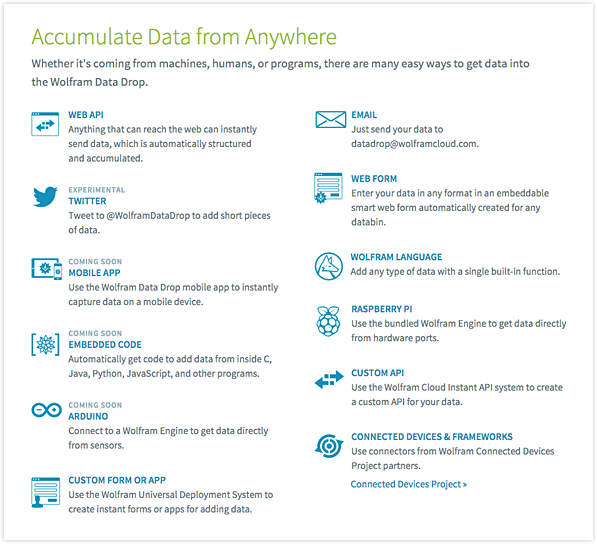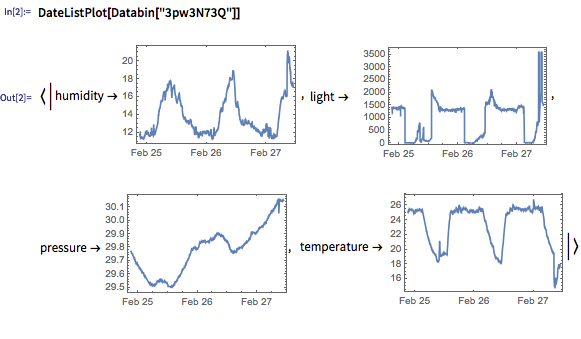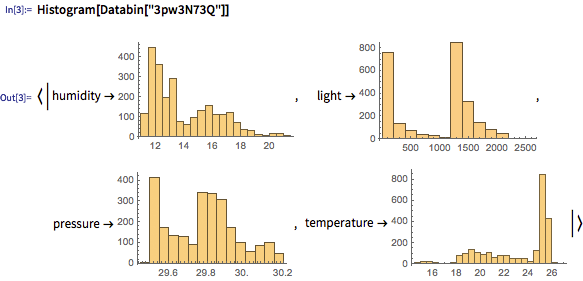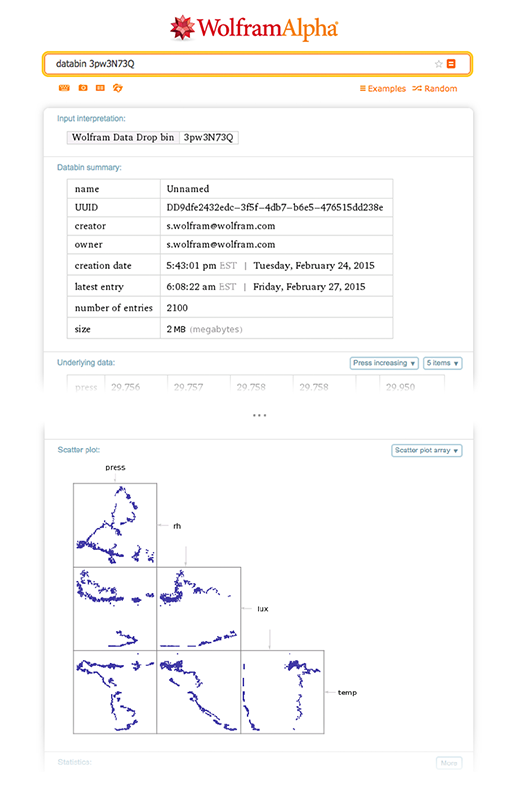
Stephen Wolfram is one of those smart Internet guys. Born in London in 1959, this scientist has been exploring for some time now the limits of technological innovation in areas such as online searches. Founder and CEO of Wolfram Research, he is the creator of the software Mathematica and the search engine Wolfram Alpha. His personal ambition is to revolutionize completely the Internet of Things… and it seems that with his latest invention he might do it!
The Internet of Things has long pursued the idea of a world of devices fully interconnected through the Internet. In this connected universe, a day could come when there would be more devices than people ‘plugged’ into the virtual world. But what’s really crucial about this technological future is what to do with the data accumulated in all these devices and how to use it. Wolfram Data Drop, Wolfram’s latest project, might be the solution.
What is Wolfram Data Drop?
The idea of Wolfram Data Drop is to build a large repository with data accumulated by all the Internet of Things devices, and use the Wolfram Language to interpret, visualize, analyze and consult all that reusable information by other devices and also by other persons. Stephen Wolfram’s system allows any user to connect a device to a cloud service, accumulate his data there and open it.
“When I first started thinking about the Data Drop, I viewed it mainly as a convenience—a means to get data from here to there,” explains the scientist in his blog, “but now that we’ve built it (…) it’s a universal accumulator of data, set up to get—and organize—data coming from sensors, devices, programs, or for that matter, humans or anything else, and to store this data in the cloud.”
What does Wolfram pursue with this project?
The idea of the mathematician is to turn Wolfram Drop Data into a great universal data center, where any software and hardware can connect and use its information. An API, an email, a service like Twitter, a device with Arduino hardware, a Raspberry Pi device… the possibilities are huge. “We’re going to be progressively adding more and more ways to connect to other data collection systems,” he explains.

But what is it that makes Data Drop so special? The way in which it stores data in the cloud using a standardization protocol through what they call a ‘databin’, which is associated with a unique alphanumeric identification. Each of these ‘databins’ has its own url on the Wolfram Data Drop website, containing the details of the device and the accumulated data.
This allows any user to download raw data from any device connected to this data center, but with one particularity: the information accumulated in Wolfram Data Drop has all the advantages of the Wolfram Language, i.e. it’s sorted data and represented in and understandable way. For instance, Wolfram explains in his blog post the collection process, and shows the environmental information gathered by a sensor placed in his desktop: data on temperature, humidity, pressure and light. The information is stored in the cloud in a way that can be used directly, without prior treatment, because it manages a universal protocol:


In addition, any search for a particular databin in the Wolfram Alpha engine generates an answer with all the information about the device and the accumulated data. Therefore, we would be talking about a kind of ‘Google for the Internet of Things’.

Many companies related to the Internet of Things, wearables and Big Data are launching new devices which are constantly connected. But almost no one had yet created an effective way to collect and process data neatly, without substantial cost increases in infrastructure and applications and dashboards to analyze that information. Wolfram Data Drop tries to offer a universal system that solves the use of data from the Internet of Things.
“Part of the reason we created the Wolfram Data Drop is to give such companies a better solution,” says Wolfram. “They deal with getting the data—then they just drop it into the Data Drop, and it goes into our cloud (or their own private version of it), where it’s easy to analyze, visualize, query, and distribute through web pages, apps, APIs, or whatever.”
Some important features of Wolfram Data Drop
Wolfram Data Drop allows to upload data publicly or privately. Any user who wants to upload data to the Wolfram Cloud can open or close the access to his information through authentication. Due to the recent launch of the project, Wolfram Research hopes to gradually be able to increase the upload speed of data. Moreover, the idea is that companies or organizations wanting to use Data Drop to store private information in the cloud can access their databins directly from their own infrastructure.
Each of these databins can contain information of a single device or mix information collected from several sources simultaneously. This doesn’t generate problems, as the information collected always contains metadata which lets us know its specific origin. Once the data is stored in the cloud, you can access it from desktop systems or mobile devices.
If you are a developer who wants to access data in order to implement your projects, you can do so via the Wolfram Cloud. And if you are a company that produces wearables, for example, you can access the information by creating your own private site within Wolfram Data Drop or create your own private Wolfram Cloud. Moreover, you can also access the information through an app that works with the Wolfram Language, either yours of from third parties.
Drop Data wants to end with “lots of messiness that’s been associated with collecting and processing actual data from real-world sources.” “I’m excited about all the things I’m going to be able to do with the Wolfram Data Drop, and I’m looking forward to seeing what other people do with it,” says Wolfram in his post. This universal system can be the ultimate driver of the Internet of Things and another asset within the world of Big Data.
More information on APIs here.
BBVA – Follow on @BBVAAPIMarket






























